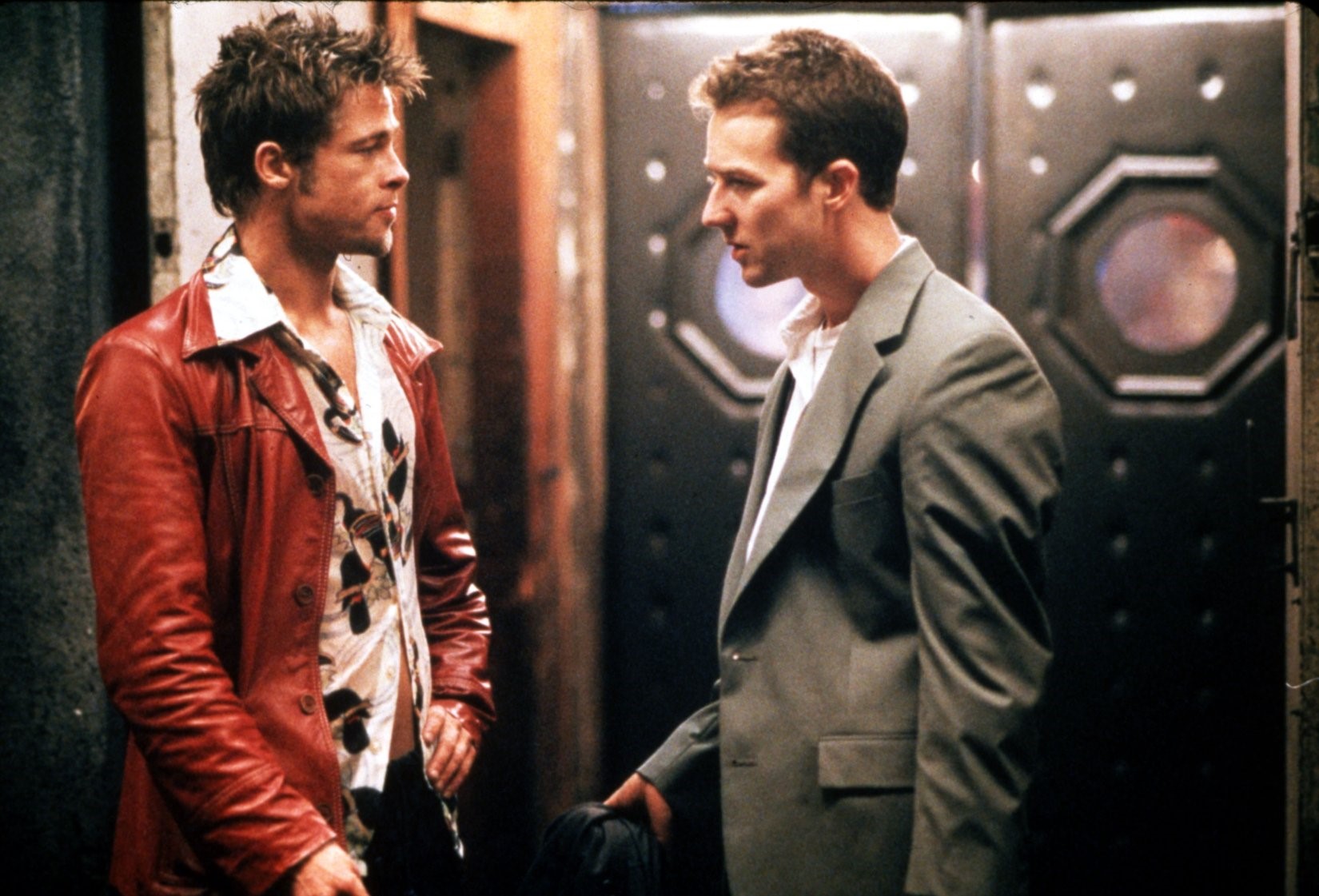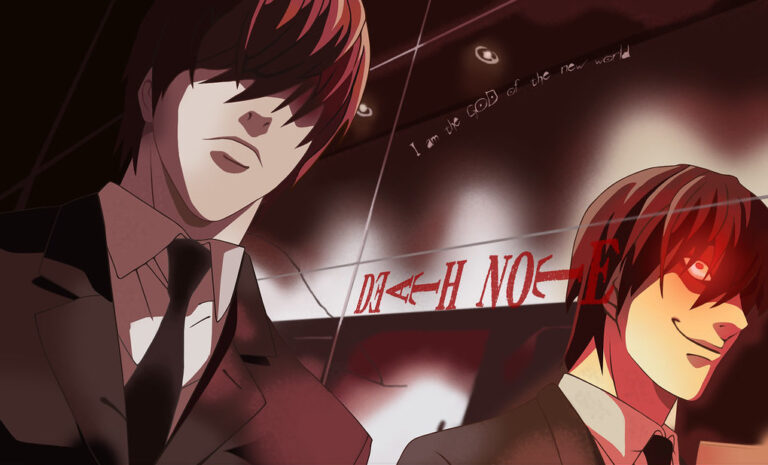Fight Club (1999) Psychological Analysis
Fight Club (1999) is a cult classic that has captivated audiences with its dark and complex themes. The film explores the concept of identity disorder and how it can manifest in individuals. With its thought-provoking narrative and intriguing characters, Fight Club has become a popular subject for psychological analysis. In this article, we will delve into the film’s themes, the protagonist’s struggles with identity, and the theories that have been applied to the story. Join us as we take a closer look at this iconic film and uncover the psychological complexities that lie within.
Themes
The movie Fight Club is a reflection of contemporary society and its often dissociogenic effects, as seen through the unnamed protagonist’s journey. This movie examines the disconnect between individuals and their true desires, caused by the monotony of life and the pressure to conform to societal standards. It also critiques capitalist ideals, encouraging viewers to make their own choices and preserve their individuality. Lastly, it takes a deep dive into the psychology of the alter-ego, showcasing how repressed emotions can manifest in monstrous ways.

The film encapsulates the feeling of being unsatisfied with one’s job and life, and looking for alternatives to find fulfillment. It speaks to the idea that consumerism and materialism have taken over, leaving people with a sense of emptiness. The fight club represents a form of escape for the characters, allowing them to rebel against these societal norms and reclaim meaning in their lives.
At the core of Fight Club lies the concept of the alter-ego becoming monstrous. Tyler Durden, the protagonist’s alter-ego, is a symbol of his repressed desires and emotions. As the storyline progresses, he becomes more violent and destructive, which ultimately leads to the creation of Project Mayhem. This serves as a warning of how psychology can be used to explore the darker aspects of human nature and the consequences of suppressing one’s inner self.
Alter-ego Becomes Monstrous
The concept of an alter-ego becoming monstrous is a central theme in Fight Club that delves into the psyche of the unnamed protagonist and his doppelganger, Tyler Durden. Initially, the protagonist wanted to shake up his mundane life but, as he grew deeper in the fight club, his alter-ego began to take on a life of its own. This transformation became more and more pronounced as the story developed.
The metamorphosis of the protagonist’s alter-ego into a monstrous entity symbolizes the dangers of unchecked masculinity. The protagonist turned to fighting and violence as his insomnia was no longer pacified by the support groups he attended. Tyler further fomented this behavior by promoting the creation of Project Mayhem, a terrorist organization that intended to dismantle society. Through this, the protagonist’s alter-ego became a symbol of the dark side of masculinity, which can lead to destruction and chaos.
This transformation is also a reflection on the hazards of groupthink. As the protagonist became more involved with the fight club and later Project Mayhem, he relinquished his individuality and became a part of something bigger than himself. This loss of individuality is what allowed the group to become a terrorist cell and carry out devastating acts. The transformation of the protagonist’s alter-ego into a monster is indicative of his own psyche as well as a commentary on the risks of following a group or ideology without question.

Social Contagion Theory
The concept of social contagion offers insight into the dynamic between the narrator and Tyler in Fight Club. This idea suggests that certain emotions, behaviors, and beliefs can rapidly spread amongst a social group, akin to a virus. The narrator is initially captivated by Tyler’s magnetic charm and rebellious attitude. As he becomes more immersed in the world of fight club, he starts to mimic Tyler’s personality states and perspectives, eventually resulting in his own mental breakdown.
A key component of social contagion is conformity. People often imitate the actions of those around them, often assuming opinions which do not truly reflect their own. This is clearly seen in Fight Club, as the narrator gradually takes on more and more of Tyler’s traits. As Project Mayhem progresses and the group commits more acts of violence, the narrator becomes increasingly detached from reality and is no longer in control of his own personality states.
The utilization of social contagion theory in Fight Club illuminates the potential risks of conforming and the strength of social influence. The movie is a warning about the importance of preserving one’s individuality and opposing the forces of groupthink. Through analyzing the relationship between the narrator and Tyler with this theory, we gain a greater understanding of the film’s exploration of identity, psychology, and society.

Psychoanalytical Lens
The psychoanalytical viewpoint provides a valuable tool for interpreting the intricate characters and motifs in Fight Club. A prime illustration of this is the Oedipal complex, which postulates that a child’s unconscious yearning is to take control of their opposite-gender parent while eliminating their same-sex parent. This can be related to the relationship between the unnamed protagonist and Tyler Durden, with the protagonist’s admiration and longings for Tyler seen as a demonstration of his own Oedipal wishes. Moreover, the homoerotic tinges of the movie can also be understood through this lens, implying that the protagonist’s fascination with Tyler is a manifestation of his own suppressed homosexuality. This psychoanalytical angle allows for a more thorough comprehension of the characters’ drives and cravings.
Examining into the character of Tyler Durden, portrayed masterfully by Brad Pitt and Edward Norton, opens up more opportunities for the use of the psychoanalytical lens. Through psychoanalysis, Tyler can be understood as a monstrous representation of the narrator’s own psyche. This lens reveals that Tyler is a manifestation of the narrator’s repressed desires and aggravations, representing his longing to break free from societal norms and embrace his own distinctiveness and strength. Through the movie’s portrayal of the relationship between Tyler and the narrator, we can witness how the psychoanalytical viewpoint can offer insight into the multifaceted psychological themes that feature heavily in the film.
Capitalist Ideals Rejected
The protagonist’s search for something more meaningful than his consumerist lifestyle is the central theme of Fight Club. His dissatisfaction with the status quo drove him to create the fight club, a means of rebelling against society’s norms and rejecting the materialistic values he had been taught to uphold. Through this rejection of capitalist ideals, the protagonist was able to find a sense of purpose and meaning in his life.
The fight club members began to challenge the idea of material possessions and wealth as the key to happiness, instead finding fulfillment in the connections they made and the sense of community they established. This critique of consumerism has resonated with many viewers who have likewise felt disillusioned with the materialistic values of our society.
Additionally, the film critiques the concept of the American Dream, which is often linked to capitalist ideals. Initially, the protagonist believed that hard work would lead to success and contentment, only to realize that this dream was unattainable and that the pursuit of it had left him empty and disheartened. By turning away from the American Dream, he was able to find a new purpose and meaning in life.
Fight Club’s rejection of capitalist ideals is more than just a critique of consumerist culture; it is a call to action. The film encourages viewers to question the values of society and to consider alternative ways of living. The movie suggests that by abandoning the materialistic values of contemporary life, we can cultivate deeper relationships with others and find greater meaning in our lives.
Unnamed Protagonist’s Boredom
The unnamed protagonist of Fight Club (1999) is an individual who is profoundly discontented with his dull job and unvaried life. Tyler Durden, a character who appears to him as a figment of his imagination, becomes an impetus for change. The protagonist is fed up with his existence and feels that he has become a slave to his occupation, with no genuine meaning. This ennui is what leads him to seek out Tyler and join the fight club. Through his alter-ego, he is able to flee from the humdrum of his quotidian life and investigate a new side of himself. The protagonist’s boredom is a key theme in the film, and it serves as a spark for the events that follow.
The protagonist’s boredom also functions as a critique of modern society. The film proposes that the present-day world has become so rigid and predictable that it has sapped the life out of people. The protagonist’s job is a manifestation of this, as he spends his days toiling in a spiritless, corporate environment. Tyler Durden symbolizes a repudiation of this lifestyle, and through him, the protagonist is able to free himself from his tedious life and accept a fresh way of existence. Tyler embodies the enthusiasm and excitement that the protagonist feels is missing from his life. The protagonist’s boredom, therefore, is not just an individual issue, but an indication of a greater social problem.
Project Mayhem
As the Fight Club group progressed into the terrorist cell known as Project Mayhem, the implications of such a transformation brought to light the hazards of relying on violence and anarchy as a means of escaping reality. This extremist organization serves as a cautionary tale, emphasizing the power of following a powerful leader and the contagiousness of social influences. This movie serves to illustrate the repercussions of disregarding social norms and the risks of being too self-absorbed.
Project Mayhem serves as a critique of 21st-century society and its capacity to cause detachment. The group’s anti-capitalist beliefs and promotion of anarchy are indicative of the rejection of conforming to the status quo. Tyler Durden, the protagonist of the film, embodies this concept of going against the grain; however, his descent into madness and the mayhem of Project Mayhem is a reminder of the risks of extremism. This movie poses significant queries about the balance between individuality and collective values, and the repercussions of disregarding societal expectations.
The psychology of Tyler Durden
The enigma of Fight Club’s Tyler Durden is captivating. He represents a complex blend of psychological themes that captivate the audience and invite analysis. At its core, Tyler Durden embodies the concept of the alter-ego. He serves as a manifestation of the unnamed protagonist’s repressed desires, suppressed masculinity, and untapped potential. Tyler allows the protagonist to break free from societal constraints and explore his true self, albeit in an extreme and chaotic manner.

Tyler’s character highlights the psychological consequences of societal pressures and conformity. He rebels against the monotony of life and the pressure to adhere to societal standards, advocating for a radical form of anarchy as a means of personal liberation. Tyler’s actions and ideology challenge conventional norms, inviting viewers to question their own conformity and consider alternative paths to self-discovery.
Tyler Durden represents the darker aspects of human nature. As the narrative unfolds, his character becomes increasingly violent and destructive. This transformation highlights the potential consequences of repressed emotions and unaddressed psychological wounds. Tyler serves as a cautionary tale, demonstrating the dangers of suppressing one’s inner self and the explosive consequences that can arise from unresolved psychological conflicts.
Related: This serves as a warning of how psychology can be used to explore the darker aspects of human nature and the consequences of suppressing one’s inner self.
Conclusion
In conclusion, Fight Club (1999) is a thought-provoking film that delves deep into the human psyche and the impact of societal norms on the individual. Through the use of dissociative identity and themes such as capitalism, religion, and psychology, the film challenges viewers to question their own beliefs and values. The character of Tyler Durden, in particular, has become a cultural icon and subject of intense analysis. Whether viewed through a social contagion lens or a psychoanalytical one, it is clear that Fight Club remains a relevant and impactful film over two decades after its release.







Admiring the time and energy you put into your site and detailed information you offer.
It’s awesome to come across a blog every once in a while that isn’t the same
old rehashed material. Great read! I’ve saved your site and I’m including your RSS feeds to my Google account.
velorian.top
Thank you! I really appreciate your kind words. I hope you have a nice day! ^^
The heart of your writing whilst appearing agreeable at first, did not really settle properly with me personally after some time. Someplace throughout the paragraphs you actually were able to make me a believer but only for a short while. I nevertheless have got a problem with your leaps in logic and one might do well to fill in all those gaps. In the event that you can accomplish that, I would undoubtedly end up being fascinated.
Thank you for your sincere comment! Comments like yours make me want to be a better writer and make quality articles. I hope you have a nice day 🙂